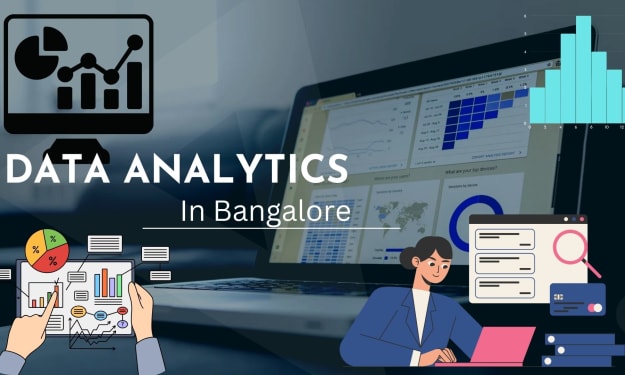Cultivating Insights: Big Data In Agriculture Research In Thessaloniki, Greece
Big Data In Agriculture Research

Greece's Thessaloniki is a center for agricultural research, and the School of Agriculture at Aristotle University of Thessaloniki has made great contributions to the field's advancement. Numerous research institutes and facilities devoted to agricultural innovation and technology are also located in the city. Big data has become an essential part of agricultural research in recent years, helping researchers and farmers make data-driven decisions and increase crop yields. This essay examines the application of big data to Thessaloniki agriculture research paper writing, emphasizing the prospects, difficulties, and noteworthy studies in the area.
Hire A Research Paper Writer For Big Data In Agriculture
To hire a research paper writer for big data in agriculture, you can follow these steps:
Pick a Reputable Service: If you're looking for a trustworthy service, go with Words Doctorate, since they have professional research paper writers who are well-versed in big data in agriculture.
Define Your Requirements: Clearly state what you need for your research paper, such as the topic, length, and any special instructions or due dates.
Choose a Qualified Writer: Verify that the writer has the necessary training and expertise in both agricultural and big data. You can look through their profiles on websites such as Upwork.
Talk About Your Project: Talk to the writer to make sure they are aware of your requirements and are capable of producing a top-notch work.
Track Progress: To make sure the work lives up to your standards, periodically check in with the writer and offer input.
Examine and Finalize: Before submitting the work, go over it carefully and make any required edits.
Challenges In Big Data In Agriculture Research
The primary problems of implementing big data in agriculture are:
Low Data Quality: A big data implementation's success depends on the availability of clean, valid, and full data. Any disparities in the dataset could produce false conclusions and negatively affect operational choices.
Big Data Skills Scarcity: It's difficult to find top talent because of the high demand for big data developers with the necessary skills. Around the world, a lot of tech organizations are looking for partners in big data analytics, especially in Eastern Europe.
Volume, Variety, and Velocity: Processing and analyzing agricultural data sets can be challenging due to their large volume, diverse sources, and intricate structure.
Veracity: It's critical to guarantee the precision and dependability of data. To ensure data correctness and consistency, automated inspections and data governance are required.
Data Integration: It might be difficult to combine data from several sources, including sensors, weather stations, and farm management software. Appropriate data sources, data preparation, and automated tests are needed for this.
Data analysis: Specific knowledge and equipment are needed to analyze big datasets. To glean insights from agricultural data, machine learning techniques like support vector machines, random forests, and neural networks are employed.
Data Governance: Improving data quality and guaranteeing regulatory compliance need the implementation and mastery of data management technologies.
Budget and Resource Restrictions: Putting big data solutions into practice can be expensive and resource-intensive. Farmers and agricultural organizations need to weigh the advantages of big data against its implementation costs.
Cybersecurity: It's critical to defend agricultural data against online attacks. Upholding data security and privacy is essential to preserving big data solutions' credibility.
Education and Training: To use big data analytics efficiently, farmers and other agricultural professionals need education and training. This entails knowing how to analyze big data insights and make decisions based on data.
How Can Farmers Ensure The Quality Of Data Used In Big Data Analytics?
The following measures can be taken by farmers to guarantee the quality of data used in big data analytics in agriculture:
Data Collection: Make certain that information is gathered from dependable sources, including farm management systems, weather stations, and sensors. Make sure the data is accurate on a regular basis and deal with any inconsistencies.
Data Integration: Utilize technologies like data warehousing and data lakes to make sure that data from various sources is seamlessly merged. This facilitates the development of a cohesive picture of farm operations, improving insights and decision-making.
Data Preprocessing: Make sure the data is correct, comprehensive, and consistent by cleaning and preprocessing it. This entails addressing missing values, eliminating duplicates, and formatting data appropriately for analysis.
Data validation: Verify the accuracy and dependability of the data by comparing it to established benchmarks and standards. This entails looking for mistakes, anomalies, and contradictions.
Data Quality Metrics: Create metrics for data quality in order to gauge the caliber of the data. This covers measurements like correctness, consistency, and completeness of data.
Data Governance: To guarantee the integrity and quality of your data, set up a data governance system. Roles and duties, data standards, and data security procedures are all part of this.
Data Visualization: To make the data easier to grasp and analyze, show it in a clear and succinct manner using data visualization tools.
Continuous Monitoring: Keep an eye on the accuracy and dependability of the data at all times, taking corrective action as necessary, and monitoring its quality and integrity.
Opportunities In Big Data In Agriculture Research In Greece
Despite the challenges, big data in agriculture research offers numerous opportunities, including:
Precision farming: Using big data, farmers can make accurate decisions about when and how to sow, water, and harvest crops, increasing yields and decreasing waste.
Predictive maintenance: By using big data analytics to anticipate equipment malfunctions, downtime may be minimized and total farm productivity can be increased.
Supply Chain Optimization: By utilizing big data to streamline supply chain processes, agricultural products may be delivered promptly and effectively.
Sustainability: Using big data, farmers can implement sustainable methods that will lessen their influence on the environment and increase their social responsibility.
Applications Of Big Data In Agriculture Research In Thessaloniki:
Big data is being used extensively in agriculture research in Thessaloniki in a variety of fields, including supply chain optimization, market forecasting, precision farming, and crop management. Thessaloniki researchers have gathered a tonne of information on crop growth, weather patterns, soil health, and other topics by utilizing satellite pictures, IoT devices, and advanced sensing technologies.
Through the use of statistical modeling methods, data-driven decision support systems, and machine learning algorithms, researchers in Thessaloniki have been able to glean actionable insights from these data streams, empowering farmers to make decisions with confidence in real time. Predictive analytics, for instance, can assist in identifying the best times to plant, reducing pest outbreaks, and optimizing irrigation schedules—all of which can increase agricultural productivity while reducing resource waste.
Furthermore, precision agriculture, organic farming, and agroecological techniques are just a few of the sustainable agriculture methods that Thessaloniki is promoting thanks in large part to big data analytics. Researchers can create strategies to minimize the use of agrochemicals, prevent soil erosion, and protect biodiversity, all of which support the long-term survival of agricultural systems, by assessing environmental data and keeping an eye on the health of ecosystems.
Conclusion
In conclusion, Thessaloniki, Greece, emerges as a dynamic hub for big data in agriculture research, where ancient wisdom converges with modern innovation to cultivate sustainable food systems for the future. Through collaborative efforts, innovative technologies, and data-driven insights, researchers in Thessaloniki are at the forefront of shaping the future of agriculture, driving positive change and fostering resilience in the face of global challenges.
As Thessaloniki continues to evolve as a leading center for agricultural innovation, it not only contributes to the prosperity of rural communities and the well-being of the planet but also embodies the timeless spirit of stewardship and innovation that has characterized this historic region for millennia. With its fertile lands, rich biodiversity, and pioneering spirit, Thessaloniki remains an inspiring destination for researchers and practitioners alike to cultivate insights and reap the harvest of sustainable agriculture through the power of big data.
About the Creator
Enjoyed the story? Support the Creator.
Subscribe for free to receive all their stories in your feed. You could also pledge your support or give them a one-off tip, letting them know you appreciate their work.





Comments (1)
So profound . Loved your work.